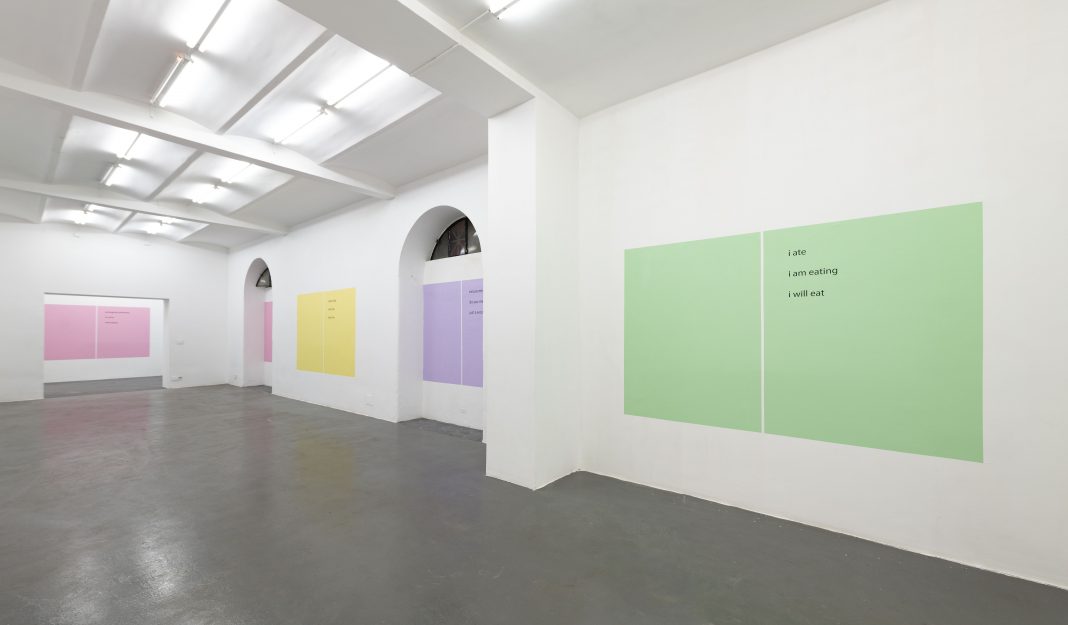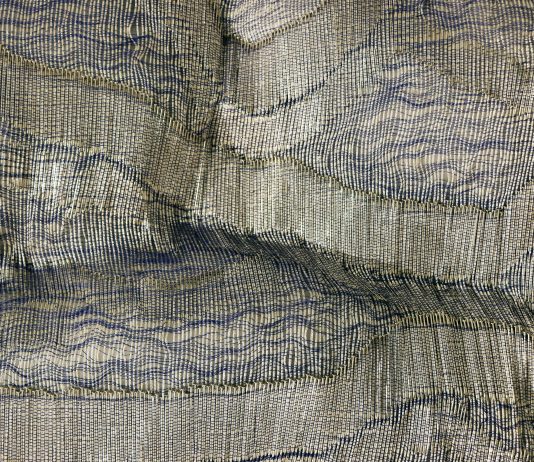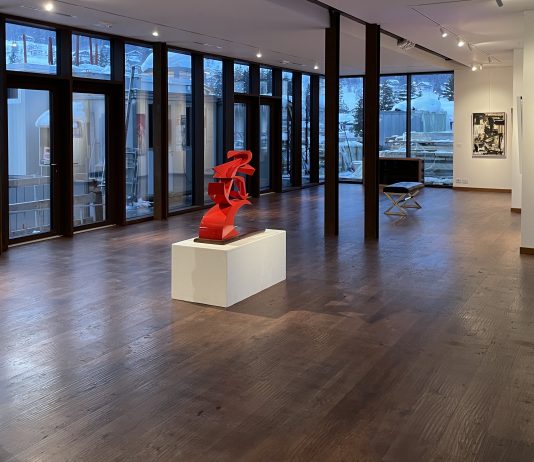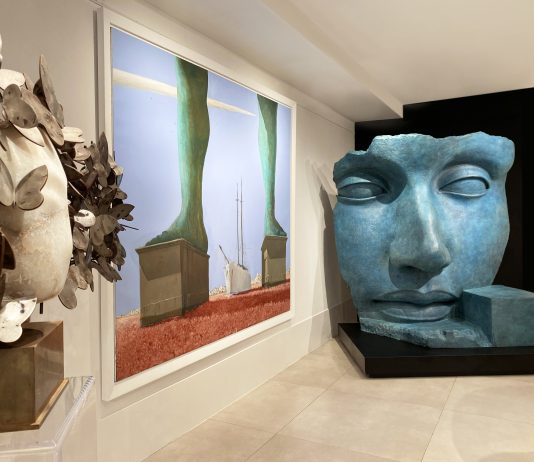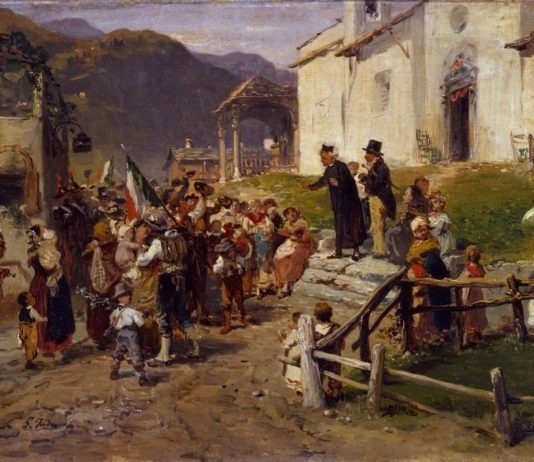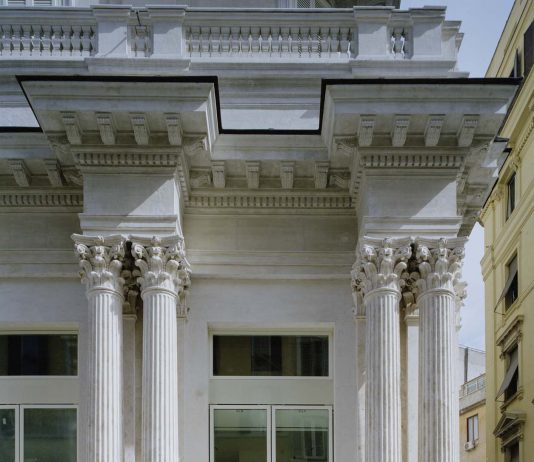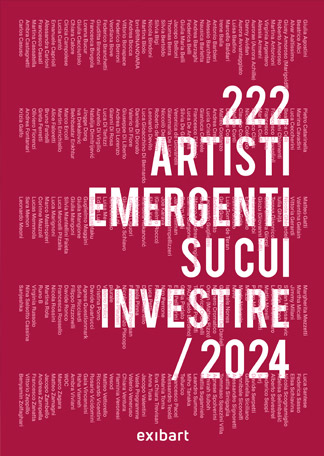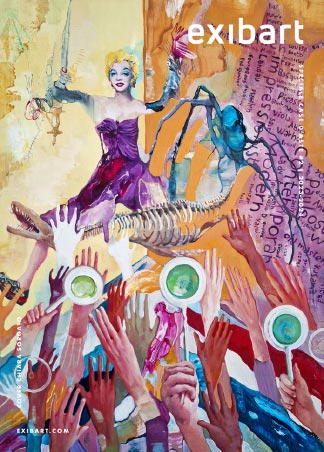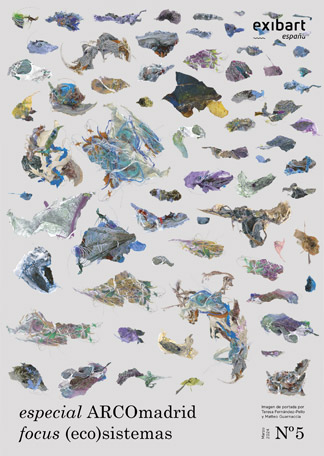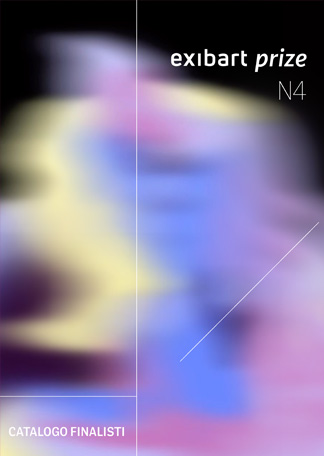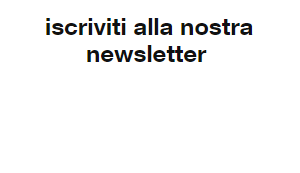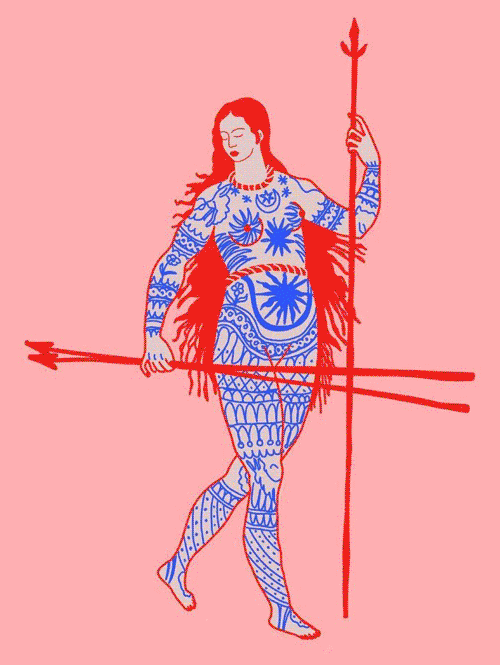-
- container colonna1
- Categorie
- #iorestoacasa
- Agenda
- Archeologia
- Architettura
- Arte antica
- Arte contemporanea
- Arte moderna
- Arti performative
- Attualità
- Bandi e concorsi
- Beni culturali
- Cinema
- Contest
- Danza
- Design
- Diritto
- Eventi
- Fiere e manifestazioni
- Film e serie tv
- Formazione
- Fotografia
- Libri ed editoria
- Mercato
- MIC Ministero della Cultura
- Moda
- Musei
- Musica
- Opening
- Personaggi
- Politica e opinioni
- Street Art
- Teatro
- Viaggi
- Categorie
- container colonna2
- container colonna1
Continua il focus sulle gallerie internazionali. Oggi è la volta di Postmasters.
Era Giugno del 2019 quando Paulina Bebecka da New York apriva la sede romana di Postmasters, una delle realtà più interessanti del panorama internazionale e spazio dedito alla sperimentazione e alla ricerca. A via Crescimbeni, a due passi dal Colosseo, PostmastersROMA da subito ha avviato un fitto programma di mostre collettive e personali, con artisti giovani e meno giovani, spesso presentandoli per la prima volta in Italia. Abbiamo chiesto a Paulina Bebecka come sta affrontando questo periodo di blocco e cosa possiamo aspettarci per il futuro.
In queste settimane stiamo assistendo al proliferare di iniziative di beneficenza, i primi a essere chiamati all’azione sono stati gli artisti. Credi che questo modello basato sulla gratuità del lavoro artistico possa costituire un precedente rischioso per gli artisti stessi?
«Gli artisti sono straordinari e così tanti hanno donato le loro opere a cause meravigliose. Non darei per scontato che questa generosità avrà un impatto negativo sul loro mercato. Ciò che è vero è che agli artisti viene chiesto di partecipare ai benefici in ogni momento e spero e esorto gli artisti a sapere che è perfettamente OK dire “no” quando non si allinea alla loro visione del loro futuro, oppure no Il momento giusto. Non spingerei mai nessuno a partecipare. Gli artisti sono quelli che detengono molto potere. Senza di loro non c’è Arte, nessun mercato dell’arte, nessuna scena artistica, nessun mondo dell’arte.
Personalmente, ho lavorato a una mostra / vendita con postmasters Roma per l’ospedale Spallanzani di Roma sin dall’inizio del blocco, all’inizio di marzo. Abbiamo lanciato l’iniziativa online il 22 aprile con 37 artisti che hanno contribuito ciascuno con un’opera nuovissima che raffigura l’Amabie. È una creatura mitica, con tre zampe, la testa di un uccello, i capelli lunghi e le squame, la cui immagine è creduta nel folklore giapponese per combattere le epidemie se mostrata ai malati. Tutti gli artisti sono stati straordinariamente generosi scegliendo di partecipare a questo progetto. E non potrei essere più grata. Ogni giorno presentiamo un nuovo lavoro, è possibile vedere le opere sul nostro Instagram @PostmastersROMA e online.
È importante per me restituire alla città che amo, che ha portato nella mia vita tanta bellezza e pace, nonché nuove avventure artistiche».
Quanto pensi che questo momento influenzerà l’economia del sistema artistico?
«La crisi ha già colpito notevolmente l’economia dell’arte. Le attività più immediate sono state cancellate, posticipate e migrate online. Ciò si riflette in enormi perdite finanziarie nell’intero spettro del sistema artistico, inclusi settori come musei e istituzioni, gallerie e artisti, amministratori, spedizionieri, produzione, editoria e molti altri ancora. Non sappiamo come andrà a finire tutto, ma non dobbiamo dimenticare che ora è il momento di reinventare e ristrutturare il sistema. QUESTO è il momento di approfondire e spingere per risolvere o migliorare quegli aspetti del sistema artistico di cui ci lamentiamo privatamente. Tuttavia, la preoccupazione è immensa con tutta l’incertezza sul futuro».
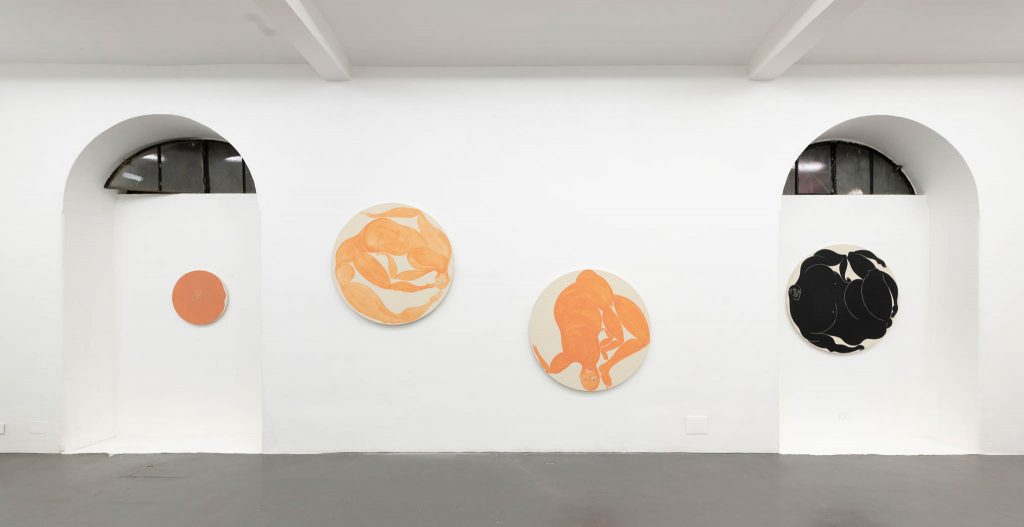
Quale pensi sia il pericolo maggiore che il sistema artistico dovrà affrontare e quale può essere il lato positivo di questa situazione?
«Il pericolo maggiore è che i grandi diventino più grandi e che i più piccoli scompaiano; il divario si allargherà. Sono anche molto spaventata per tutti i professionisti dell’arte, che lavorano come freelance senza rete di sicurezza integrata nel sistema. Il lato positivo di questa situazione è che ora abbiamo una grande opportunità di cambiare ciò che non ha funzionato. Credo nelle collaborazioni perché il mercato dell’arte non è un gioco a perdere. È tempo di essere coraggiosi e continuare a lottare per il sistema in cui crediamo .. Sono fiduciosa».
Quale area del mondo e che tipo di collezionista pensi che tornerà per investire nuovamente nell’arte?
«Al momento ci sono collezionisti che acquisiscono arte. Non è tutto finito! L’arte è importante. A chi ci rivolgiamo in una crisi come questa? Artisti! Cosa consumiamo adesso? Libri, film, musica, poesia, arti visive – ed è per questo che è indispensabile che coloro che possono continuare a sostenere le arti lo facciano senza esitazione».
In che modo ritieni che le gallerie più giovani e affermate debbano essere supportate?
«Esistono molti modi per supportare le gallerie su tutta la linea. Chiaramente le vendite sono la principale forza trainante di qualsiasi attività commerciale. Una galleria deve mantenere le luci accese esattamente come una panetteria. E con le acquisizioni non stai solo supportando la galleria, ma tutti i soggetti coinvolti: gli artisti, i corniciai, gli allestitori e tutti gli altri soggetti intrecciati in questo complicato sistema. Ma non dimentichiamo che condividere contenuti, commentare, apprezzare i post online delle gallerie è anche un supporto fantastico – significa molto nella nostra era digitale, specialmente ora che viviamo praticamente online».
It is time to be brave and continue fighting for how the system we believe in should look like.. I am hopeful
Our focus on international galleries continues. Today is the turn of Postmasters.
It was June 2019 when Paulina Bebecka from New York opened the Roman headquarters of Postmasters, one of the most interesting realities on the international scene and a space dedicated to experimentation and research. In via Crescimbeni, a stone’s throw from the Colosseum, PostmastersROMA immediately started a busy program of group and solo shows, with young or more established artists, often presenting them for the first time in Italy. We asked Paulina Bebecka how she is facing this period and what we can expect for the future.
In recent weeks we are witnessing the proliferation of charity initiatives, the first to be called to action were the artists. Do you believe that this model based on the gratuitousness of artistic work can create a risky precedent for the artists themselves and for their market?
«Artists are extraordinary and so many have donated their works to wonderful causes. I wouldn’t assume that this generosity will impact negatively their market. What is true is that artists get asked to participate in benefits all the time and I hope and urge artists to know that it is perfectly OK to say ‘no’ when it doesn’t align with their vision of their future, or isn’t the right time. I would never push anyone to participate. Artists are the ones holding a lot of power. Without them there is not Art, no art market, no art scene, no artworld.
I personally have been working on a PostmastersROMA benefit exhibition/sale for the Spallanzani Hospital in Rome since the very beginning of the lockdown in early March. We launched the initiative online on April 22 with 37 artists each contributing a brand-new work which depicts the Amabie. It is a mythical creature, with three legs, a head of a bird, long hair and scales, whose image, is believed in Japanese folklore to fight epidemics if shown to the ill. All the artists are extraordinarily generous to participate in this project. And I couldn’t be more grateful. Each day we introduce a new work, therefore it is also a durational exhibition You can view the works on our Instagram @PostmastersROMA and online.
It is important for me to give back to the city that I love, that has brought into my life so much beauty and peace as well as new art adventures».
View this post on InstagramA post shared by PostmastersROMA (@postmastersroma) on
How much do you think this moment will affect the economy of the art system?
«The crisis has already affected the economy of art greatly. Most immediate activities were cancelled, postponed and migrated online. This means huge financial losses across the whole spectrum of the art system, including museums and institutions, galleries and artists, administrators, art handlers, shippers, production, publications and so many more. We don’t know how it will all turn out, but we must not forget that now is the moment for reinvention and restructuring of the system. THIS is the moment to look deeper within and push to resolve or improve those aspects of the art system we complain about privately. Nevertheless, the worry is immense with all the uncertainty about the future».
What do you think is the greatest danger that the art system will face and what can be the positive side of this situation?
«Greatest danger is that the big will become bigger and that the small ones will disappear; the competitive advantage gap will widen. I am also very fearful for all the art professionals, a lot working as free lancers with no safety net built into the system. The silver lining of this situation is that now we have a grand opportunity to shift and change what isn’t and hasn’t been working. I believe in embracing collaboration because the art market is not a zero sum game. It is time to be brave and continue fighting for how the system we believe in should look like.. I am hopeful».
Which area of the world and what kind of collector do you think will return first to invest in art again?
«There are collectors right now acquiring art. It’s not all over! Art is important. Who do we turn to in a crisis like this? Artists! What do we consume now? Books, films, music, poetry, visual arts – and that is why it is imperative that those who can should continue to support the arts without hesitation».
By what means do you think the younger and more established galleries should be supported?
«There are many ways to support galleries across the board. Clearly sales are the main driving force behind any business. A gallery has to keep the lights on just the same as a bakery. And with acquisitions, you are not only supporting the gallery, but everyone involved: the artists, the framers, the shippers, the handlers, and everyone else weaved into this complicated system. But let’s not forget that sharing content, commenting, liking posts online of the galleries is also a fantastic support- means a lot in our digital age, especially now when we basically live online».





